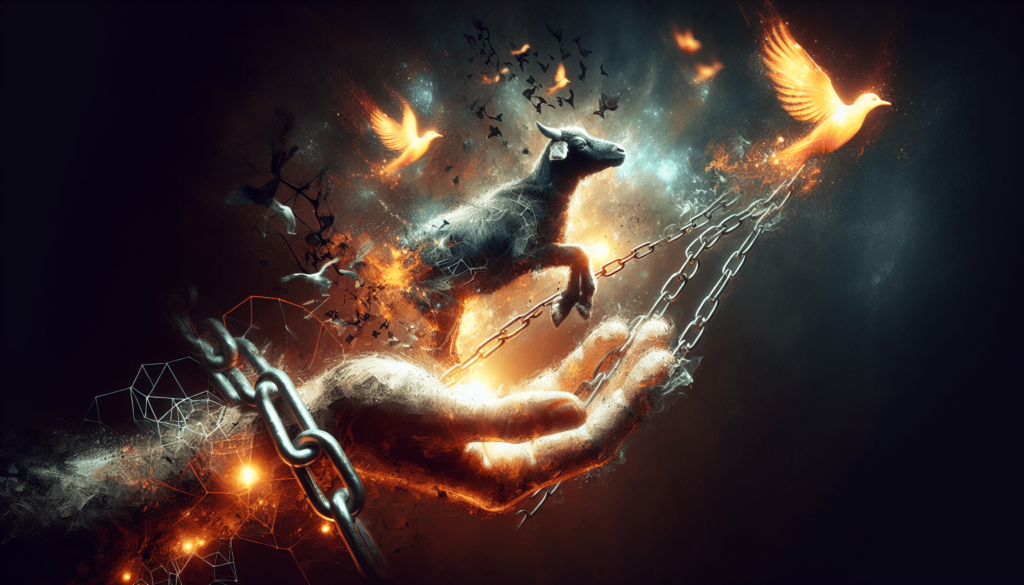Have you ever wondered why some people mistreat animals?
If you have ever found yourself questioning why some individuals mistreat animals, you are not alone. The mistreatment of animals, whether through neglect, abuse, or exploitation, is a complex issue that can have a profound impact on both the animals involved and society as a whole. In this article, we will delve into the psychology behind why some people mistreat animals, exploring the various factors that can contribute to this harmful behavior.
Lack of Empathy or Compassion
One of the primary reasons why some individuals mistreat animals is a lack of empathy or compassion. Empathy is the ability to understand and share the feelings of others, and it plays a crucial role in determining how we interact with the world around us. People who lack empathy may struggle to connect with or understand the suffering of animals, leading them to mistreat or abuse them without remorse.
Table: Lack of Empathy or Compassion
| Signs of Lack of Empathy or Compassion: |
|---|
| Indifference towards the suffering of animals |
| Inability to recognize the emotions of animals |
| Lack of remorse or guilt after mistreating animals |
It is essential to remember that empathy is a learned behavior that can be developed and enhanced over time. By fostering empathy and compassion towards animals, individuals can cultivate a deeper understanding and respect for the well-being of all living beings.

Psychological Disorders
Another factor that can contribute to the mistreatment of animals is the presence of underlying psychological disorders. Individuals who suffer from mental health conditions such as conduct disorder, antisocial personality disorder, or psychopathy may exhibit a lack of empathy and impulse control, making them more likely to engage in abusive behaviors towards animals.
Table: Psychological Disorders
| Common Psychological Disorders: |
|---|
| Conduct Disorder |
| Antisocial Personality Disorder |
| Psychopathy |
It is crucial to recognize that individuals with psychological disorders may require professional intervention and treatment to address their harmful behaviors towards animals. By seeking help from mental health professionals, individuals can work towards understanding and managing their conditions in a healthy and constructive manner.

Childhood Experiences
Childhood experiences can also play a significant role in shaping how individuals perceive and interact with animals later in life. Research has shown that individuals who have experienced abuse or neglect during childhood may be more likely to mistreat animals as adults, as they may have learned destructive patterns of behavior from their early environment.
Table: Childhood Experiences
| Impact of Childhood Experiences: |
|---|
| Increased likelihood of mistreating animals |
| Learned patterns of abusive behavior |
| Lack of healthy role models for animal care |
It is essential for individuals who have experienced trauma or adversity in their childhood to seek therapy and support to address any unresolved issues that may be contributing to their mistreatment of animals. By understanding and processing past experiences, individuals can work towards developing healthier relationships with animals and themselves.
Societal Norms and Values
Societal norms and values can also influence how individuals perceive and treat animals within a community. In some cultures or societies, animals may be viewed as commodities or resources to be exploited for human benefit, leading to widespread mistreatment and abuse. Additionally, societal attitudes towards animals can shape legislation, policies, and public perceptions of animal welfare.
Table: Societal Norms and Values
| Impact of Societal Norms and Values: |
|---|
| Perpetuation of harmful practices towards animals |
| Lack of legal protections for animal rights |
| Influence on individual behavior towards animals |
It is crucial for individuals to challenge and question societal norms and values that perpetuate the mistreatment of animals. By advocating for animal rights, supporting ethical treatment practices, and promoting awareness of animal welfare issues, individuals can work towards creating a more compassionate and responsible society for all living beings.
Lack of Education and Awareness
A lack of education and awareness about animal welfare issues can also contribute to the mistreatment of animals. Many individuals may not be fully informed about the needs and rights of animals, leading to unintentional harm or neglect. By educating oneself and others about proper animal care, responsible pet ownership, and ethical treatment practices, individuals can take proactive steps towards preventing animal mistreatment.
Table: Lack of Education and Awareness
| Importance of Education and Awareness: |
|---|
| Prevention of unintentional harm or neglect |
| Promotion of responsible pet ownership |
| Advocacy for animal rights and welfare |
It is crucial for individuals to seek out reputable sources of information and resources to educate themselves about animal welfare issues. By participating in advocacy efforts, volunteering at animal shelters, or supporting organizations dedicated to animal protection, individuals can contribute to a positive change in how animals are perceived and treated within society.
Conclusion
In conclusion, the mistreatment of animals is a multifaceted issue that can be influenced by a variety of psychological, social, and environmental factors. By understanding and addressing the root causes behind why some individuals mistreat animals, we can work towards creating a more compassionate and responsible society for all living beings. It is essential for individuals to reflect on their attitudes and behaviors towards animals and take proactive steps to promote animal welfare, empathy, and respect in their communities. Together, we can make a positive impact on the lives of animals and create a more harmonious relationship between humans and the natural world.

